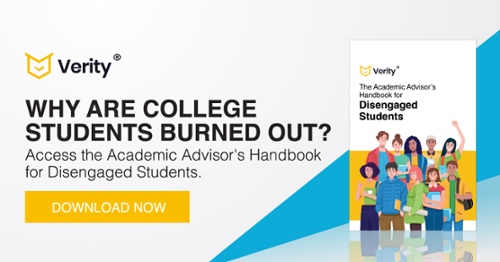6 Things Every College Student Needs from their University
One of the best things about having a richly diverse student body is that all students have unique expectations, vantage points, and priorities. What’s important to one student might not be important to the next.
That said, there are some universal best practices worth following that will help you build stronger relationships with your students and keep them actively engaged with your school. At a time when enrollment is down across the board, this is super important.
Here are six things every college student needs from their school:
1. An Engaging Campus Community
One of the best (and most challenging) aspects of building a campus community is that your students all want and need different things. For example, you can plan amazing, high-budget events most of your students love, but there are still some people who won’t be interested.
And that’s okay.
An engaging campus community can mean a lot of things to a lot of people. That’s why it’s important to offer diverse events that represent the varied interests of your students.
The idea is to provide as many opportunities as possible for students to engage with one another and with your school. The more engaged students are, the happier they are (and the more likely they’ll remain enrolled!)
Here are some more tips for creating a thriving campus culture.
2. Options for Multichannel Communication
Similarly, all students have their own preferences for using different communication channels. Some may prefer that all school updates come via SMS text, whereas others may prefer school communications to happen strictly via email.
Whatever their communication preferences are, it’s essential that you give them the option.
The schools that do this most effectively are offering cross-platform communication so students can engage in the channels that they prefer, such as SMS text, email, voice, chat, video, and now virtual reality (VR).
To learn how you can build a strong multichannel communication strategy, download our 21 Multichannel Communication Templates to get free, ready-to-use templates specifically designed for college student engagement.
3. User-Friendly Technology
We can all think of examples in which we’ve been super frustrated by software that’s outdated, slow, or unintuitive.
At best, it’s an inconvenience. At worst, people abandon the experience entirely.
This is especially true for college-aged students who are typically tech-savvy and have high standards for how easy to use a piece of technology should be.
If you’re asking them to take important actions like registering for classes, signing up for events, or submitting tuition payments and the user interface for the software is abysmal, what kind of student experience are you providing?
And, if you’re striving to create a paperless campus, leveraging a user-friendly platform must be at the top of your list.
4. Opportunities for Student Leadership
It’s not that all students are looking to take on leadership roles. In fact, most won’t.
The important thing is to give students an opportunity to play a role in creating their own experiences. They need to feel that they have a voice and that when they speak, someone is listening.
And, even though only a small percentage of students actually seek leadership opportunities, all students benefit from this situation.
Students not only have great ideas, but they bring such a strong passion to the table that can spread to staff and faculty members. Give your students a platform and watch them help make real, powerful changes at your school.
5. Flexibility and Support
The past few years have been challenging for everyone, but this is particularly true for college students. That's why so many of them are dropping out of college.
Because of this, it can be a good idea to offer as much flexibility, support, and grace as possible at your school.
What kind of flexibility do you offer now?
That can mean a lot of things to different people. Are students able to take classes both part-time or full-time? Do they have the option between in-person and remote learning? What about a hybrid approach? Are your faculty members being a little more lenient on deadlines where necessary?
This isn’t to say that deadlines shouldn’t matter and the school should lower its rigorous standards. What we do mean is that student expectations have evolved and schools need to find ways to keep up.
That’s one of the reasons that academic advisors play such a critical role in the student journey. To get a better sense of what type of support your students need, here are 10 questions to ask current college students.
6. Career Services Support for Life After College
What’s happening on your campus right now that’s preparing students for beginning their careers?
This is an important question to ask yourself because today’s students are preparing for life after college more than any generation before them. They understand the importance of networking, learning applicable skills, and preparing for entering the workforce.
Ideally, career services should be blended into the college experience from the beginning. This isn’t something that students should start thinking about in their spring semester of senior year—yet this is the reality on many campuses.
For more insights on how you can meet the needs of your students and keep them active, happy, and engaged, download the Academic Advisor’s Handbook for Disengaged Students. Inside, you’ll find tips and insights for building short- and long-term plans for helping disengaged students get back on track for good.



